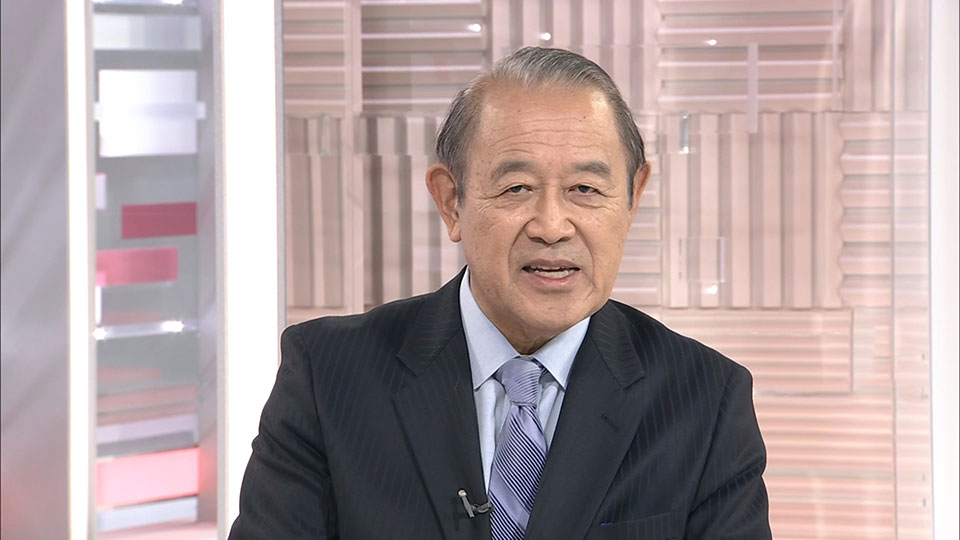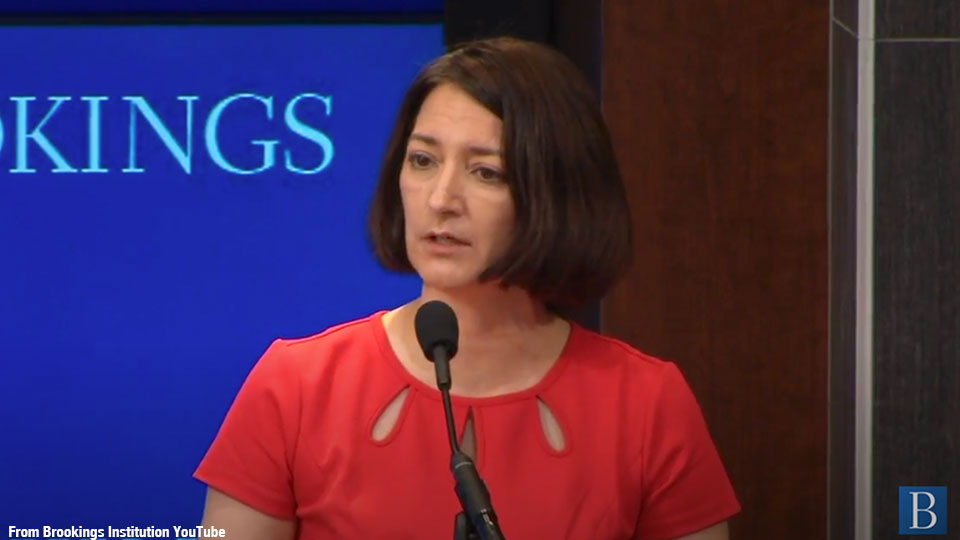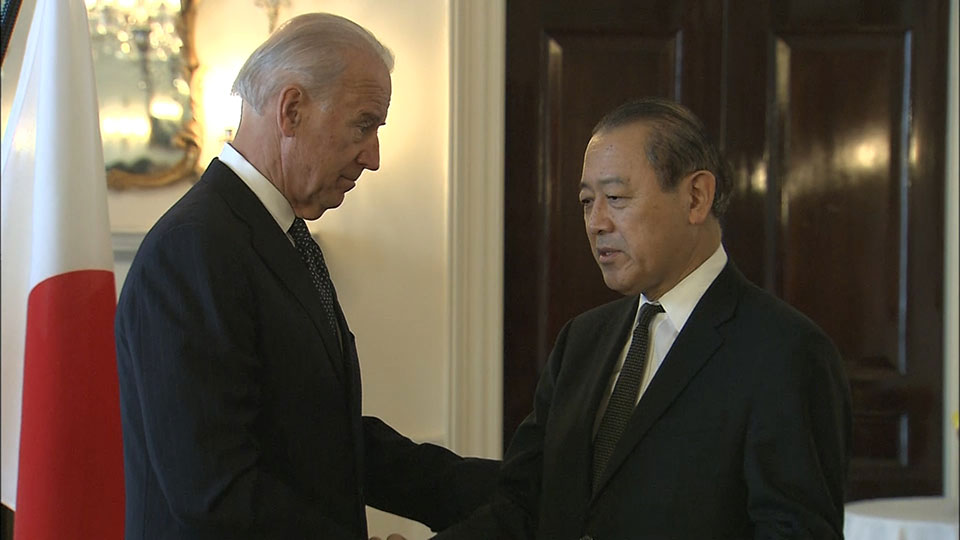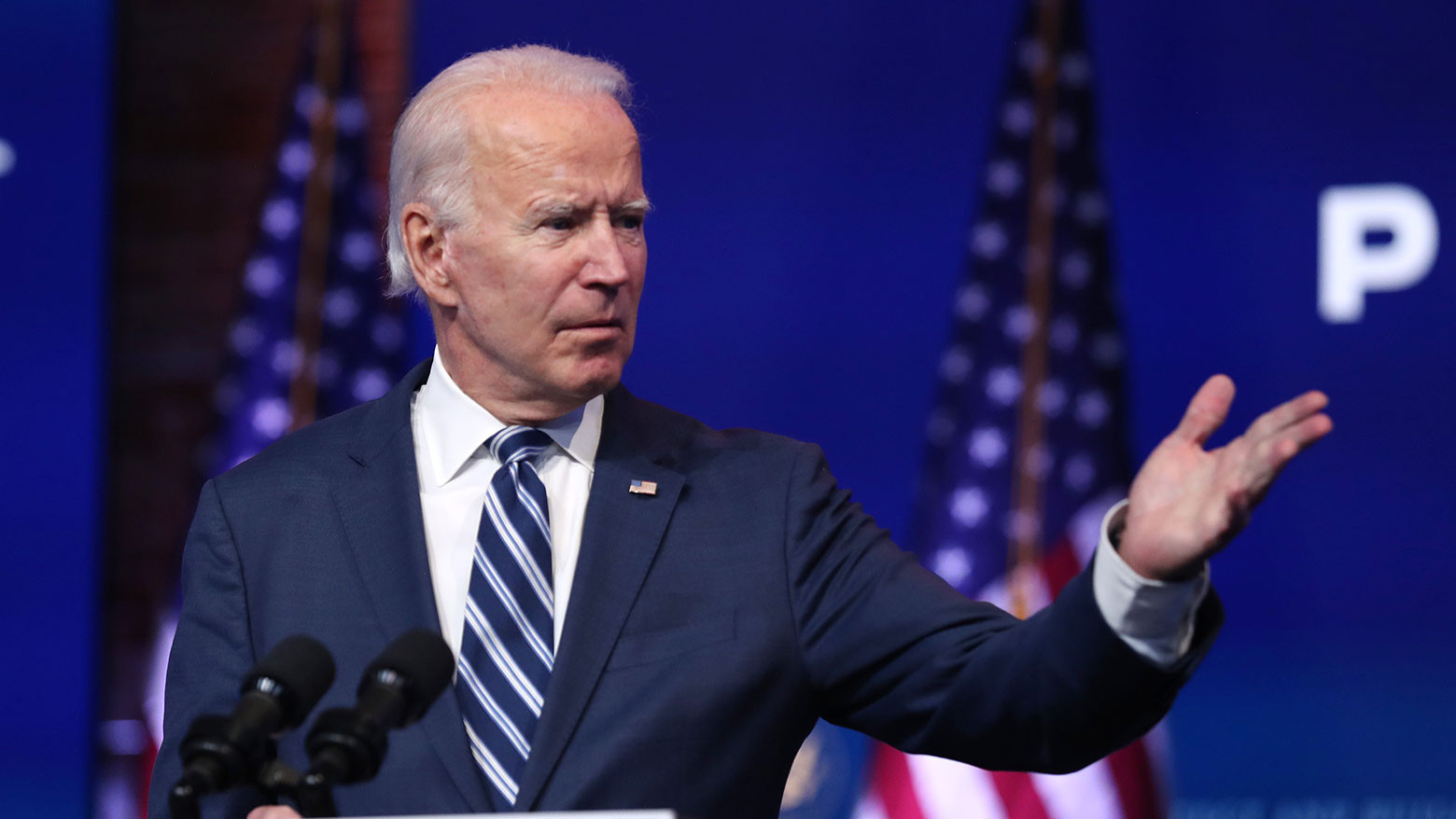Prospects for Multilateralism and US alliances
Q. You served in Washington during the administrations of two presidents, George W. Bush and Barack Obama. What can you tell us about President-elect Biden from your experience?
FUJISAKI: My impression of then-Vice President Biden was of his being a team player, a lot more so than President Trump, which would increase the predictability of Biden’s foreign policy. For the last four years, diplomats felt as if there were no maps or guidebooks to follow [in terms of US diplomacy]. But now I think the US and Japan are coming back to a place where we have maps or charts or calendars or whatever to follow, and not the President’s Twitter account.
We need the US as a leader in a multilateral world. It may have been taking a nap for some time, but we very much appreciate that the US will come back to the multilateral world, to tackle issues like climate change, the economy and trade. We need America to be one of the leading voices of the world.

Q. What changes do you envisage in President-elect Biden’s foreign policies compared to President Trump’s?
SOLIS: There will be major, very visible differences right away, because the priorities and the goals of US diplomacy are going to be very different. What I have in mind is being a leader in a global response to the pandemic, being very proactive in playing a role in climate change. I expect to see a return to multilateralism and a real emphasis on investment in alliances.
President Trump has taken a transactional approach to the alliances and tried to mostly maximize the allies’ contributions to hosting US troops, such as the case with South Korea, by threatening even a withdrawal of troops, which was very destabilizing. He also took a very tough line vis-a-vis European partners and created tensions in the transatlantic relationship. But under President-elect Biden, there's going to be a real investment in the US alliance network. There will be a much deeper understanding of the value and the merits of alliances and how they help the US create its own national interest and that the entire alliance is not just brought about by shared geopolitical interests, but also because of shared values and because societies over time have grown closer. So there's a lot to the fabric of the alliance that will be nurtured in the Biden administration

Future US-Japan relations
Q. Some observers in Japan say that for Japan's ruling Liberal Democratic Party, a Republican president might have been easier to work with. Would you agree with that?
FUIJSAKI: I don't agree with that at all. A lot of people say that because of the past relationships between President Ronald Reagan and Prime Minister Nakasone Yasuhiro or Prime Minister Koizumi Junichiro and President George W. Bush. But when Japan had the great disaster in 2011, it was President Obama who helped us with Operation Tomodachi. President Obama also visited Hiroshima for the first time as American President. I worked with the Democratic government and found no difficulties. US-Japan relations are on the right track and we should pursue this road. Japan is a credible ally in the Pacific region for the US and Japan needs American support as well.

Q. How should US-Japan relations develop in the era of a ‘Rising China?
SOLIS: If there is one issue that is going to dominate US strategy in the years to come, it is China policy. I think that a Biden administration would continue with a tough line on China, but probably play its cards differently. And there are going to be some very important decisions that the Biden administration has to make right off the bat. That is, what to do with tariffs on China and what to do with that stage-one trade deal negotiated with China. I don't think that the administration is going to give away the leverage that he has with those tariffs. They're likely going to stay in place for a while.
And Japan actually is the one who is competing head-to-head with China. Japan has fashioned itself as a leader in international trade and is offering a counterpoint to China’s Belt and Road initiative with its quality infrastructure investments. I feel that more attention should be given to what Japan has done, that it's helpful to the United States. It's also important for Japan to look around and see that there are benefits to having been spared polarization and dysfunction, and to be a steady hand in a very turbulent world, and that there's plenty of opportunity for Japan and the US to actually team up in initiatives such as promoting a free and open digital ecosystem, the “Quad” (The Quadrilateral Security Dialogue; an informal strategic forum between the US, Japan, Australia and India) and everything under the rubric of the Indo-Pacific strategy. There's great potential still for the US and Japan to deepen their bond.

